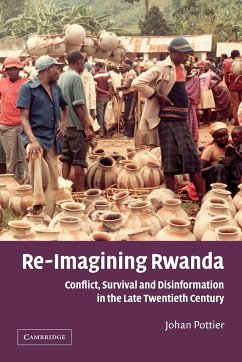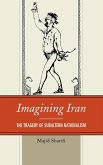The tragic conflict in Rwanda and the Great Lakes in 1994-1996 attracted the horrified attention of the world's media. Journalists, diplomats and aid workers struggled to find a way to make sense of the bloodshed. Johan Pottier's troubling study shows that the post-genocide regime in Rwanda was able to impose a simple yet persuasive account of Central Africa's crises upon international commentators new to the region, and he explains the ideological underpinnings of this official narrative. He also provides a sobering analysis of the way in which this simple, persuasive, but fatally misleading analysis of the situation on the ground led to policy errors that exacerbated the original crisis. Professor Pottier has extensive field experience in the region, from before and after the genocide, and he has also worked among refugees in eastern Zaire.
Table of contents:
1. Build-up to war and genocide: society and economy in Rwanda and Eastern Zaire; 2. Mind the gap: how the international press reported on society, politics and history; 3. For beginners, by beginners: knowledge construction under the Rwandese Patriotic Front; 4. Labelling refugees: international aid and the discourse of genocide; 5. Masterclass in surreal diplomacy: understanding the culture of 'political correctness'; 6. Land and social development: changes, proposals and their imagery; 7. Conclusion: representation and destiny; Bibliography.
Pottier shows how the post-genocide regime in Rwanda imposed their account of Central Africa's crises upon international commentators, and explains the ideological underpinnings of this official narrative. He examines how persuasive, but fatally misleading analysis of the situation on the ground led to policy errors that exacerbated the original crisis.
Pottier examines how a persuasive analysis of the situation in Rwanda exacerbated the original crisis.
Hinweis: Dieser Artikel kann nur an eine deutsche Lieferadresse ausgeliefert werden.
Table of contents:
1. Build-up to war and genocide: society and economy in Rwanda and Eastern Zaire; 2. Mind the gap: how the international press reported on society, politics and history; 3. For beginners, by beginners: knowledge construction under the Rwandese Patriotic Front; 4. Labelling refugees: international aid and the discourse of genocide; 5. Masterclass in surreal diplomacy: understanding the culture of 'political correctness'; 6. Land and social development: changes, proposals and their imagery; 7. Conclusion: representation and destiny; Bibliography.
Pottier shows how the post-genocide regime in Rwanda imposed their account of Central Africa's crises upon international commentators, and explains the ideological underpinnings of this official narrative. He examines how persuasive, but fatally misleading analysis of the situation on the ground led to policy errors that exacerbated the original crisis.
Pottier examines how a persuasive analysis of the situation in Rwanda exacerbated the original crisis.
Hinweis: Dieser Artikel kann nur an eine deutsche Lieferadresse ausgeliefert werden.








